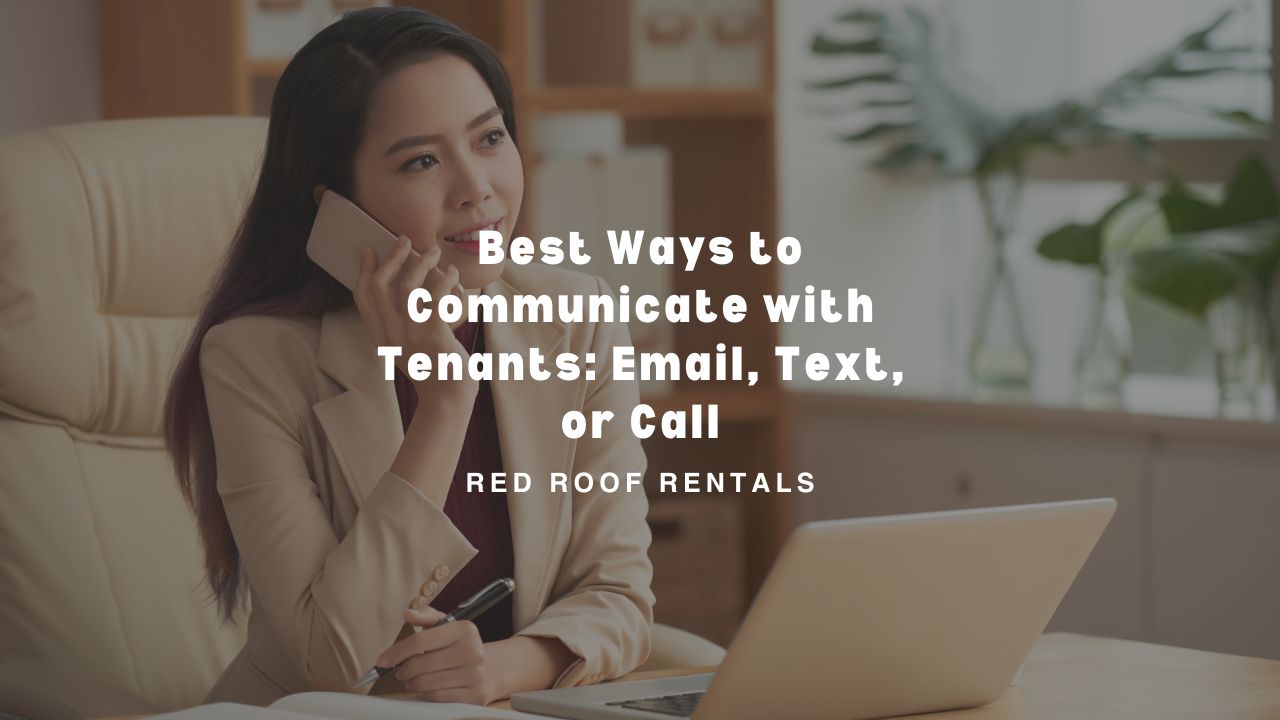Key Takeaways
- Choose the Right Communication Tool for the Situation - Use phone calls for urgent matters, relationship-building, and clarifications; emails for detailed, documented communication; and texts for quick updates and reminders. Matching the message to the medium improves clarity, professionalism, and response times.
- Establish Clear Communication Guidelines Upfront - Get tenant consent for texting, outline acceptable communication channels in the lease, and set boundaries for what topics belong in calls, emails, or formal written notices. This avoids confusion and keeps interactions appropriate and effective.
- Respect Tenant Preferences and Timing - Ask tenants about their preferred communication method at lease signing and honor it. Also, stick to business hours for non-emergency messages. Tailoring your approach builds trust and contributes to a more positive landlord-tenant relationship.
Modern technology has made it easier than ever for landlords to connect with tenants. From calls to emails and texts, communication tools are readily available at your fingertips. However, knowing which method to use and when can make all the difference in managing tenant relationships effectively.
This article by Red Roof Rentals will help you determine the best scenarios for each form of communication, whether it’s a phone call, text, or email, so you can maintain professionalism, clarity, and trust with your tenants.
When to Pick Up the Phone
While digital options are convenient, there’s no substitute for a real-time conversation in certain situations.
![]()
Some matters require the immediacy and nuance of a phone call, especially:
- Emergencies - In urgent situations, delivering instructions quickly is critical. A phone call ensures that your message is received and understood immediately.
- Courtesy Reminders - When Tacoma tenants are close to incurring late fees or breaching policies, a quick reminder call can help them take prompt action.
- Clarifications and Relationship Building - Complex issues or miscommunications are often better resolved over the phone. Verbal interaction can convey tone, intent, and friendliness more effectively than a typed message, strengthening landlord-tenant rapport.
Tips for Making Professional Calls
Phone calls, while useful, require thoughtful timing and etiquette. Follow these best practices to keep your phone communications effective and respectful:
- Be Clear and Direct - State your purpose early in the call to avoid wasting time, especially if the tenant is occupied.
- Leave Voicemails Wisely - If the tenant doesn’t answer, leave a concise voicemail detailing your reason for calling, particularly if a callback is needed.
- Use a Warm Tone - A friendly voice goes a long way toward building goodwill.
- Respect Business Hours - Unless it’s an emergency, stick to calling during normal working hours and keep calls relevant to property matters.
Why Email Remains a Valuable Communication Tool
When renting out homes, email is an efficient way to share detailed information with multiple tenants simultaneously.

It’s a solid method for documenting communication and allows you to send:
- Attachments and Visuals - Photos, documents, and infographics can be easily included.
- Reminders and Updates - Use email to remind tenants of payment deadlines or announce upcoming repairs.
- Time-Stamped Records - Emails serve as dated records, useful for referencing key conversations or notices.
Best Practices for Writing Emails to Tenants
Before hitting send, take a moment to review your message. A professional and purposeful tone helps ensure your communication is received seriously. Key tips to remember:
- Be Clear and Complete - Make sure the email includes all necessary details and instructions.
- Stick to Business - Avoid sending non-essential messages that may be viewed as spam.
- Include Contact Details - Always sign off with your contact info for any follow-ups.
- Double-Check Attachments - If you reference a document or image, confirm it’s properly attached.
- Send During Appropriate Hours - Avoid emailing tenants late at night or over the weekend unless the matter is time-sensitive.
Are Emails Legally Recognized?
Generally, yes. Emails are considered valid written communication in most states. Still, it's advisable to confirm local regulations regarding official notice delivery.
Why Texting Is a Game-Changer for Landlords
Text messaging is now a preferred method of communication for many tenants, and for good reason.

Texts are typically seen and read almost instantly. This is because, even without a smartphone or computer, tenants can receive and reply to texts. As such, landlords who embrace texting often appear more approachable and responsive.
Get Started with Text Messaging the Right Way
Before you begin sending texts, there are a few steps you must take to protect both yourself and your tenants:
- Include in the Lease - Clearly state that texting is an acceptable form of communication in the lease or rental agreement.
- Ask for Consent - Always get tenant approval before sending text messages.
- Set Expectations - Let tenants know the types of messages they can expect, such as maintenance reminders, rent due notices, or repair updates. Avoid sending unnecessary texts.
- Establish Boundaries - Clarify what topics should not be handled via text. Encourage tenants to use the online portal for formal maintenance requests or other key documentation.
Do Texts Count as Legal Communication?
In many places, text messages are considered valid electronic communication. However, for official matters like lease agreements or legal notices, having hard copies or formal written documentation is still best practice.
Bottom Line
So, which method works best? The right approach depends on the urgency of the situation and the communication preferences of your tenant.
Some may appreciate the familiarity of a phone call, while others might prefer the convenience of a quick text. In official matters, emails are best for documentation purposes. Ultimately, being flexible and respectful of their preferences can go a long way in building trust and ensuring smooth interactions throughout the tenancy.
If managing all these communication channels feels overwhelming, partnering with a professional property management team can help. Looking for a property manager who communicates well and keeps tenants satisfied? Contact us today to learn more!


